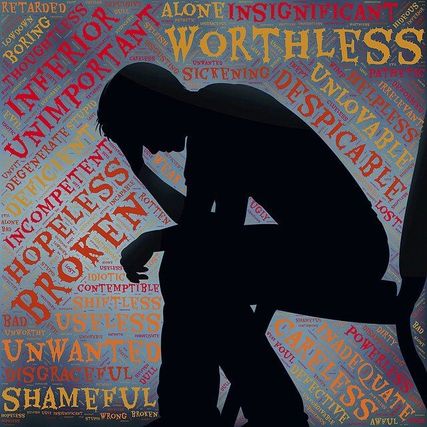
If I get promoted then I’ll be a success but if I don’t, I’m a failure. My old boyfriend was perfect, I’ll never meet anyone as good as him. If I don’t get the job I want, I will never be happy. My partner never thinks of me. I always do things wrong.
These lines are all examples of black-and-white thinking. There are no shades of grey – everything is great or awful, hot or cold, feast or famine. Most people know such sentiments are exaggerated, but all of us are occasionally prone to seeing things in black and white. Look at the language you use after a lousy day at work, or when you’re angry with someone, or when you’re down in the dumps because one thing after another seems to be going wrong – chances are, words like “never”, “always”, “definitely” and “nothing” will have crept into your sentences, absolutist words indicative of black-and-white thinking.
People are more prone to black-and-white thinking when they get aroused. When you get worked up, you’re more likely to use loose language suggesting things won’t ever change (“I’ll never get out of this rut”, “I’ll never get the job I want”). You’re also more likely to let one setback cloud your thinking. Thus, a bad party leads you to think nobody likes you anyway; a medical problem causes you to say your life is over; your friend isn’t there for you at a particular moment so you write her off as a selfish so-and-so who couldn’t care less about you.
POLITICS

Black-and-white thinking is especially evident in polarised arguments over politics. American CBT therapist Dr Robert Leahy relates on how one occasion, he told a man he was in favour of banning assault weapons, to which the person responded: ‘Bob, are you a communist? You want to take private property from people?’. Weeks later, Dr Leahy told another man his opinion on the US healthcare system. ‘I can’t believe you, Bob’, the man responded. ‘You sound like a fascist. You should be ashamed of yourself’. Over a few short weeks, Leahy noted, ‘I had covered the entire political spectrum, from communist to fascist’.
Donald Trump loves to paint things in black and white, using ugly, hurtful and simplistic language that demonises his critics. Unfortunately, Trump’s critics sometimes respond in kind, stereotyping all Trump voters as ignorant, racist, misogynistic bigots. A similar dynamic is playing out in the UK, with friends and family members falling out over Brexit and each side viewing the other in increasingly derogatory, simplistic terms. Irish politics is more consensual and there’s not the same level of name-calling, although anyone who spends time on social media will see that commentary can be unnecessarily ugly.
It’s not a good idea to characterise people as stupid, immoral and inferior simply because they disagree with you. It’s simplistic (I keep using that word, but that’s exactly what black-and-white thinking is), it’s divisive and it doesn’t work. Labeling others so you can feel morally superior will undermine the credibility of your message, notes Robert Leahy. ‘No one says, “I think you have a point. I am an idiot and a racist. Thank you for pointing this out”’.
BALANCED THINKING
The cons of black-and-white thinking are obvious. It can damage your relationships with friends and family. It can damage how you see yourself. And it can hurt your mental health – if you constantly view things in black-and-white terms, you’re much more likely to fall into anxiety or depression.
Balanced thinking means looking for the shades of grey and questioning “either/or” thinking. It means trying to remember everyone makes mistakes and that you can be a smart person who sometimes does dumb things. It means if someone upsets or offends you, you focus on their behaviour but not their character. It means remembering that if things are lousy at the moment, that doesn’t mean they’ll be lousy in the future.
Initially, life might seem a bit more boring. You might crave the drama that goes with black-and-white thinking, but remember all that drama comes with a cost. Seeking out the shades of grey, in contrast, will help you live a calmer, richer life.